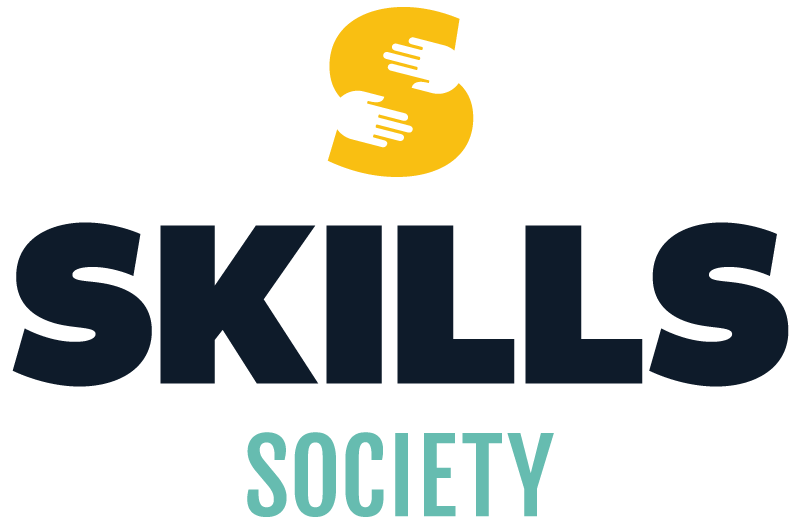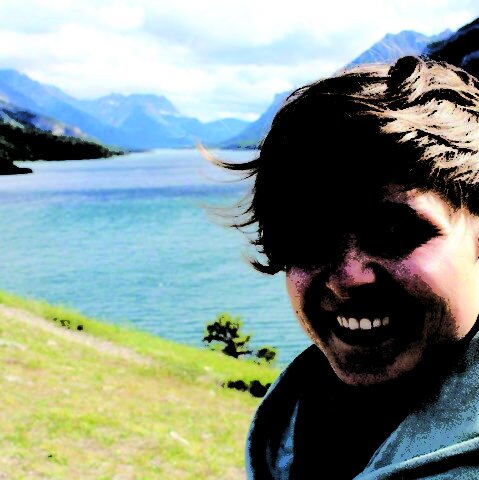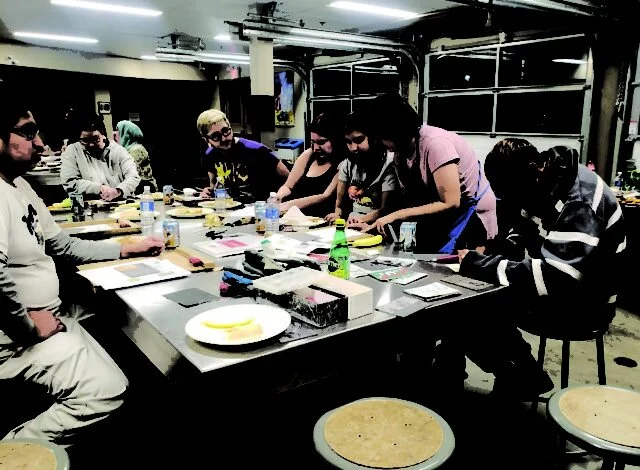Deepening our Capacity to Support Belonging
Research and social innovation are deep in the DNA of Skills Society. Our commitment to curiosity, discovery, and challenging the status quo enhances our capacity to support the people we serve. Since Skills’ inception, we have been part of building and sharing knowledge that has made the lives of the people we serve better. Our long history as a learning organization that tries things, learns, adapts, and seeks to continuously improve, supports this knowledge building.
One wicked question Skills has been exploring since the beginning is:
How do we support deep belonging in the lives of the people we serve?
Deep Belonging
Deep belonging is about being a part of the fabric of community life.
Belonging is about….
Feeling Valued
To be valued is to feel needed, important, and respected; to have your presence desired by others; to be recognized as an indispensable part of the group; and to have your absence noticed.
Being Seen and Known By Others
To be known is to feel welcomed and accepted for who you are, as you are. This requires looking beyond disability labels and being able to recognize, acknowledge, and value a person’s strengths, gifts, passions, interests, and needs.
Reciprocity
Belonging involves an exchange of feelings, beliefs, experiences, or understandings between the person and the group they seek belonging to. To belong is to both offer something and to receive something in return.
The Evolution of Belonging
Learning and Growing From Our Roots
Times have changed a great deal since we first started tackling the complex challenge of supporting deep belonging in the lives of the people we support. With each step of the way, we have thought deeply about our actions and asked ourselves “can we do better?”. This practice of questioning the status quo has deepened our understanding of belonging and pushed the boundaries of our work.
Thanks to the courage and tireless efforts of self advocates, their families, and allies, most people with disabilities have now moved out of large congregate institutions and live in community. Although the move towards community has been a positive one, there is still a great deal of work to be done in supporting people to live good lives rich with authentic social connections, meaning, and diverse experiences. When we look at Alberta today we still see a mix of segregation, integration, inclusion, and belonging in our communities.
Senior Leader of Research & Social Innovation
In April of this year I joined the leadership team at Skills. Prior to taking on this role I was a part of stewarding a number of Skills Society’s social innovation initiatives. Being new to the scene at Skills I am feeling the immense responsibility that comes with being a leader within such a highly regarded organization. To be part of an organization that is so well known for its, creativity, innovation, and leadership in the field of disability feels like a real privilege. I have deep respect for the work of those that came before me and am excited to jump in and carry forward their great work.
In addition to practice based social innovation research for Skills, a second ‘hat’ I wear is that of academic researcher. I am currently completing my PhD at the University of Alberta. As a researcher I am curious about how we might better support the deep belonging of people with developmental disabilities. My research emerges from a recognition that current approaches to supporting social inclusion often struggle to cultivate an authentic sense of belonging. My research is deeply rooted in my experiences as a sibling, friend, and ally to people with developmental disabilities.
My research is unique in that it uses participatory and ethnographic approaches. This means grounding the research in spending time hanging out with people with developmental disabilities to better understand belonging from their perspective. Together we will explore what belonging means and looks like in action, where they feel a sense of belonging, and what hinders their feelings of belonging. There is great synergy between my Skills senior leader and academic researcher ‘hats’ and I look forward to seeing the possibilities that emerge as the two bump up against one another!
Exclusion
Life Away From Others
The era of institutionalization and eugenics was a dark time in the lives of the people we support, their families, and allies. People with disabilities were separated from their families without choice and lived in institutions outside community.
What we were curious about: Can we do better? Why can’t people live in community amongst friends, family, and neighbors?
What we discovered: Keeping people separate from community life is harmful to them and to communities. People need more than their basic needs met. To flourish people need meaningful things to do each day and people in their lives that love and care about them. Communities are stronger when they are diverse.
Integration
Same Spaces, Separate Activities
When people are integrated they are in the same spaces as fellow community members but may not be doing the same things, are given ‘special’ tasks or roles, are assumed to not have much to offer, or remain socially disconnected from others.
What we were curious about: Can we do better? Why can’t people do the same things as fellow community members in these spaces? Why can’t people be an active part of things that are going on?
What we discovered: All people have unique gifts and talents to offer community. Sometimes we have to nudge community to think differently about the ways people can participate and contribute.
Inclusion
Same Spaces, Same Activities
All people live, work, and play together in the same spaces. Although people are participating in community life, they might feel pressure to conform or be more like others. People may not necessarily feel like they can be their true authentic selves and may still feel lonely.
What we were curious about: Can we do better? How do we support people in feeling like they can be their true authentic selves in community?
What we discovered: Belonging is a two way street. Gaining access to, or being physically present within a space does not necessarily lead to a sense of belonging - you can be ‘lonely in a room full of people’. Community has a part to play in ensuring spaces are welcoming and inclusive to all people.
Citizenship & Belonging
Same Spaces, Same Activities, Comfortable to Be Ourselves
People live, work, and play together in the same spaces, are seen as friends, colleagues, neighbors, citizens and feel comfortable to be themselves. People’s authentic selves are celebrated and welcomed.
What we discovered: Supporting belonging is a delicate balance of recognizing and acknowledging people’s uniqueness (not assuming everyone needs the same thing or can do things in all the same ways), whilst simultaneously recognizing people’s common humanity (we are all people deserving of respect, dignity, and rights).
What we are curious about: How do we continue to build our capacity to support the deep belonging of the people we serve? How do we support deepened belonging at home and in neighbourhoods where people are already connected? How do we support communities to nurture spaces of belonging?
Belonging:
Getting the right mix of the old, the new, and a dash of surprise
As we forge ahead, continuing to build our capacity to support the deep belonging of the people we serve, it is essential we take time to honor and learn from the work of others who came before us whilst also seeking fresh perspectives and inspiration from unexpected places. Getting the right mix of the old, the new, and a dash of surprise helps us generate innovative solutions and pathways that really work for people.
Mixing in the Old
There are some key learnings and nuggets of wisdom from the past that are worth taking forward as we move ahead in tackling this complex challenge. These include:
Nothing About Us without Us
Historically there has been a pattern of making decisions about things that affect people with disabilities without their input or presence. People with disabilities have been strong advocates and have come forward to say they need to have a say in the things that affect their lives.
Disability Rights
In times of institutionalization and eugenics people with disabilities were stripped of their rights, removed from their families and communities, and locked away. Since that time we have learned that people with disabilities deserve the same dignity, respect, and rights as everyone else.
Access Doesn’t Necessarily Lead to Belonging
For a long time we thought that if people could just get access to community spaces, then a sense of belonging would naturally follow. We are learning this is often not the case. There are many implicit, or difficult to see, aspects of community that create barriers to people’s belonging such as other people’s attitudes, perceptions, and assumptions about what a person with a disability can or should do.
Mixing in the New
New understandings and trends are emerging in different sectors and disciplines that we can mix into future solutions and pathways.
Belonging as a Fundamental Human Need
Cutting edge neuroscience is showing us the importance of belonging to our well being. When we feel as though we don’t belong our mental and physical health suffer. Science is showing us that belonging and feeling connected to others is a fundamental human need, similar to our need for food or water.
Loneliness Crisis
People with developmental disabilities are not the only ones experiencing loneliness at alarmingly high rates. Loneliness is on the rise within many different groups in our population. There is a lot of research going on that explores why this might be. Some factors that are thought to be related include the rapidly changing use of technology and an increasing culture of “safety-ism” and distrust.
The Rise of the “isms”
Critical perspectives are showing us the ways our society is built to cater to certain experiences and ‘ways of being’ more than others. We are becoming increasingly aware of the ways our community spaces can be racist, sexist, ageist, and ableist. When we really listen to the voices of people who experience oppression and marginalization we can begin to see how current systems and practices do not work for some and start to uncover new, more inclusive ways of doing things.
Belonging Comes in Many Forms
For a long time in the disability field we have had an aversion to people with disabilities gathering together. This comes from a history where people with disabilities were forced to be together against their will and stripped of their dignity and rights. However, increasingly we are rethinking this again and seeing that creating spaces where people with disabilities gather together on their own terms to share stories, organize, and safely be themselves, can be rich in belonging.
“A deep sense of love and belonging is an irreducible need of all people. We are biologically, cognitively, spiritually, and physically wired to love, to be loved, and to belong.”
Brene Brown
Dash of Surprise
We never know when a dash of positive surprise insights will hit us, but we intentionally create opportunities for inspiration from unexpected places by seeking creative collaborations and looking beyond the silo of the disability sector.
Onward
This work is not done and may never be as deep belonging is not a static place to arrive at. Supporting the deep belonging of the people we serve is complex work -there are no ‘silver bullet’ solutions. As we navigate and embrace complexity we resist the urge to create ‘one size fits all’ solutions and challenge ourselves to sit with uncertainty. There is still lots to be learned about how to better support the deep belonging of the people we serve. As a part of my role and research I will be stewarding this ongoing learning and exploration across the organization. In doing so we will continue to work to get the right mix of wisdom and past experience, fresh perspectives, and unexpected insights to support the generation of innovative solutions and pathways that can move the needle on supporting the deep belonging of the people we serve.










